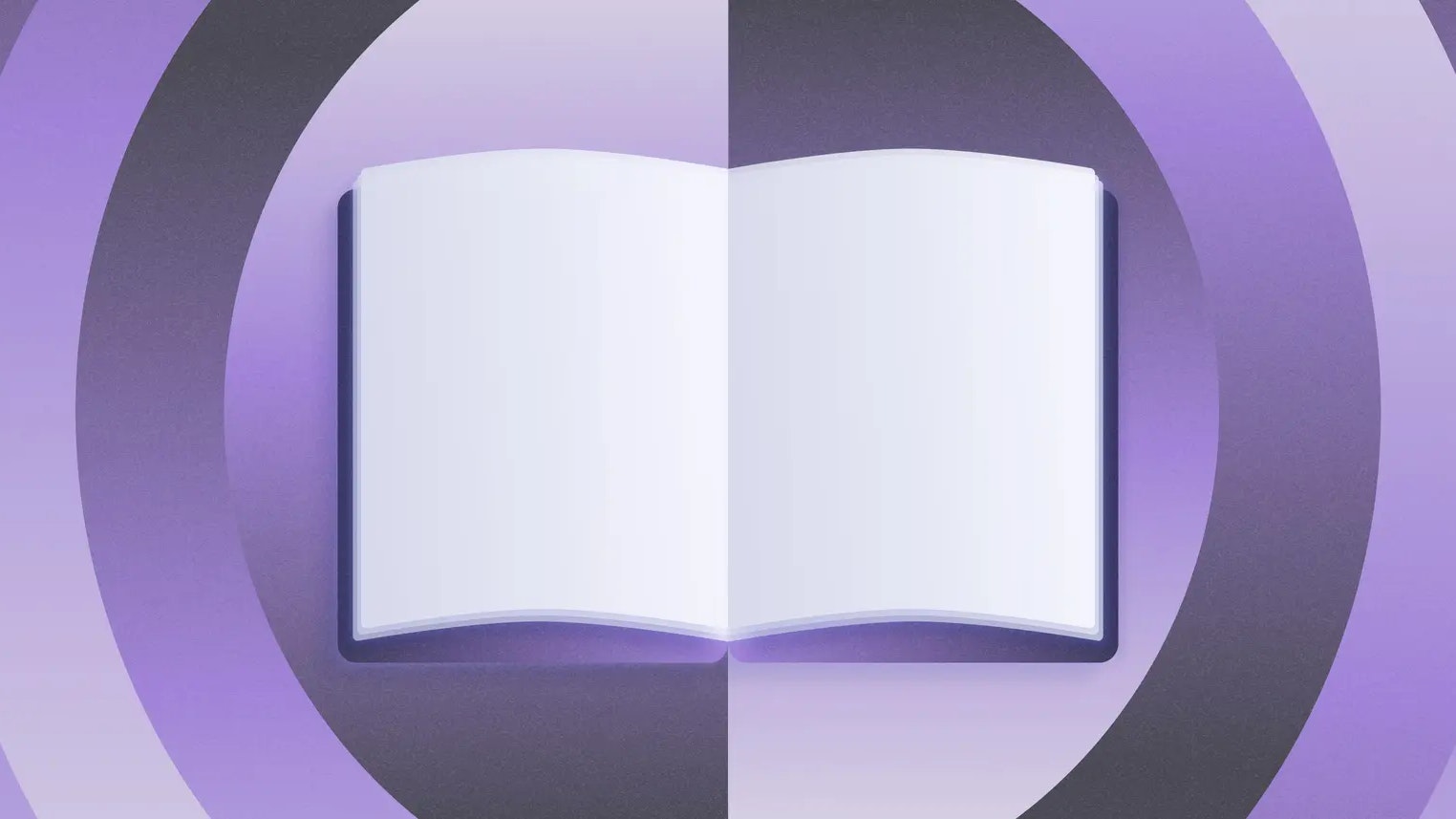8 works of fiction recommended by founders and investors

In Silicon Valley, nonfiction reigns supreme. Glance at any founder or investor’s shelf, and you’ll see it lined with books like "Zero To One," "The Lean Startup," and "Secrets of Sand Hill Road." Drop in on a conversation and you’re likely to overhear references to essays by Paul Graham and Warren Buffett.
While nonfiction is wonderful in its own right, there’s a lot to be learned from fiction as well. As it turns out, many founders and venture capitalists agree. For some, it’s a way to cultivate empathy and better understand the psychology of their fellow human beings. For others, it’s a method of healthy escapism — a way to zoom out from the bubble they spend most of their days immersed in.
But no matter the reason, there’s no denying that fiction is good for our brains. It stretches our sense of compassion, challenges us to view the world through unfamiliar eyes, and gives us glimpses into versions of the past, present, or future that can only be conjured up in our imaginations.
So what types of fiction are today’s investors and founders reading? Here are some recommendations we collected:
"Migrations" by Charlotte McConaghy
Recommended by Carine Carmy, co-founder of Origin
"Migrations," which is set in a near-future world where most of earth's wildlife has gone extinct due to climate change, focuses on a woman named Franny Stone who follows the last Arctic terns as they make their final migration to Antarctica.
“I love this book because I'm a sucker for any epic journey. The mountain trek, the arctic adventure, the athlete who goes up against all odds. Maybe it's too on the nose for a founder, but I relate to the emotional terrain in these stories and the knowing there might be a happy ending (or at least some closure), which you don't always get in startup-land,” Carine explains.
But reading fiction isn’t only about finding similarities — it’s also an opportunity to think beyond what we already know. “When I'm deep in a novel, it widens my lens and makes me think in new ways. Writer and activist Adrienne Maree Brown talks about the ‘radical imagination’ required to change the world, and I think a regular dose of fiction helps you break through the Matrix of whatever life and rules we live in and ask ourselves: what could be?"
"Snow Crash" by Neal Stephenson
Recommended by Andrew Parker, GP at Spero Ventures
Andrew, like many in the tech world, is a fan of Neal Stephenson’s science fiction due to his technical accuracy and the prophetic nature of his work. This is especially true of "Snow Crash."
According to Andrew, the book — which follows a pizza delivery driver/hacker/samurai (yes, this is real) named Hiro Protagonist as he investigates a dangerous computer virus — echoes some of the same big questions that our society is bumping up against today.
“It has one foot in the future in a very believable extension of what science, technology, politics, research, business, and even friendship might look like if we continue on our collective path of bringing more of our interactions out of the real world and into digital interactions. It’s also just downright entertaining.”
Despite being a ‘made-up’ story, Andrew explains that fiction’s ability to create worlds that don’t yet exist is one of its greatest superpowers. “Nonfiction has to adhere strictly to what actually happened, which is limiting. By contrast, fiction can be far more authentic in describing human motivations and rationalizations by not being constrained to what is verifiably known.”
"Zen and the Art of Motorcycle Maintenance" by Robert M. Pirsig
Recommended by Troy Sultan, co-founder of Guide
Founders are constantly confronted with big questions — not just about work, but also about their personal values and how those principles trickle down into the way they run their companies.
This, says Troy, is one of the many reasons why "Zen and the Art of Motorcycle Maintenance appeals to him. On the surface, it’s a fictionalized autobiography about a father and son who take a motorcycle road trip together. But layered underneath is a deep exploration of philosophy and metaphysics.“This book is an inquiry into values, which forces me to ask myself questions like: What do I value individually, what do we value as a team, and why does it matter?”
"Zen and the Art of Motorcycle Maintenance" doesn’t offer easy answers or trite takeaways — and that’s the point. “Reading this book clarified my belief that the world is complex, and value is measured in different ways by different people. So, to make the impact I aspire to in the end, I have to build for me — the things I deeply believe in,” Troy says.
"Tomorrow, and Tomorrow, and Tomorrow" by Gabrielle Zevin and "Sam and Dave Dig a Hole" by Marc Barnett and Jon Klassen
Recommended by Hayley Barna, partner at First Round Capital
It’s no surprise that "Tomorrow, and Tomorrow, and Tomorrow" appeals to investors and founders alike. It is, after all, a story about two lifelong friends who build a successful video game company together. “It’s such a beautiful illustration of the highs and lows of the founding journey,” Hayley says.
But what the book reinforces for her, more than anything else, is the importance of taking a holistic approach when working with founders. “One of the characters in that book has health issues that both drive him and hinder him. It’s a great reminder that, while it’s important to discuss the business side of things with founders, it’s just as (if not more) important to check in on them as human beings.”
Hayley offers a second, more uncommon, recommendation as well: a picture book called "Sam and Dave Dig a Hole," in which two brothers decide to go look for something spectacular. They dig and dig, but every time they get close to discovering something special, they change directions. The story ends with them landing in a place that looks similar to, but not exactly the same, as where they first started.
Children’s books often offer up a beautiful encapsulation of life’s most complex and profound questions, and this one is no different. “The fact that they tried so hard but didn’t reach their stated goal is so poignant,” Hayley explains. “And I think this is often the case for early-stage startups — not for a lack of effort, but because it’s so hard for things to click in exactly the right way.”
"The Alchemist" by Paulo Coelho
Recommended by Thenuka Karunaratne, co-founder of daydream
“When you're doing startup stuff, you can get caught up in the details — whether it’s a deadline or a fundraise — and forget the bigger picture,” Thenuka says.
"The Alchemist," which follows the journey of a young Andalusian shepherd named Santiago as he seeks his Personal Legend, is Thenuka’s antithesis to this ailment — a gentle reminder to zoom out and recognize that there’s more to life than what’s currently in front of you.
“Everyone has their own Personal Legend, or life purpose, and reading this book helps me see my company in the context of that broader journey. So, while running my startup is important to me and something that I’m choosing to do, it’s only a piece of the bigger picture — not my entire life.”
"Invisible Cities" by Italo Calvino
Recommended by Elana Berkowitz, founding partner of Springbank Collective
Fiction can be a way to practice viewing a familiar world through an entirely new lens — a skill that’s especially critical for investors, whose jobs are to envision a better future through the eyes of the founders they invest in.
That’s why one of Elana’s favorite works of fiction is "Invisible Cities," which she describes as a difficult-to-categorize book written in prose poetry where Marco Polo regales an aging Kublai Khan with stories of fantastical cities within his fading kingdom.
“The book manages to tackle memory, seeing the places we love with fresh eyes, the absolute inevitability of change, and the deeply human urge to create and build,” she explains. The power of the book, Elana says, is how the ideas contained in it have endured over time. Even though she first read Calvino’s book in college, the ideas have stayed with her for all these years. “The themes of the book still play on my mind now, especially living in NYC and spending time with amazing founders exploring world-building and world-shifting ideas.”
"No Exit" by Jean-Paul Sartre
Recommended by Kareem Amin, co-founder of Clay
“Hell is other people.” This is Sartre’s most recognizable line, and it comes from his play "No Exit," which explores existentialist themes through the interactions of three deceased characters trapped in a room in Hell.
While many people interpret this line as having misanthropic undertones, Kareem has a different take: “It’s about perception — specifically, how the way you think other people perceive you impacts the way you behave, and how you need to center back into yourself to be able to operate from a place of integrity.”
This likely rings especially true for founders, who are often pushed and pulled in different directions by multiple stakeholders. While Kareem agrees, he clarifies that he doesn’t read fiction with the intention to parse company-building lessons from them.
“Steve Jobs has a good quote, which is: ‘you can't connect the dots looking forward.’ So my approach is always to follow my interests first, then maybe look back and see what I’ve learned. But sometimes there’s nothing to learn, and treating fiction as a method of learning might cause you to miss out on deeper connections that can happen when you just let things sit.”
Related reads

A map of ambition: San Francisco

What embracing everyday magic can teach us about design

The analog foil to digital enshittification
